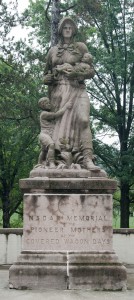
‘What a pretentious title’, I thought as I started the BBC 4 documentary, ‘Johnny Cash: The Last Great American’ (2004). By the end of this thoughtful, fast-paced hour, I could feel the desperation of its producers to capture Cash in a phrase small enough for the TV listings.
‘Great American’ would be my choice. Just that. Simple. Clear. Like his lyrics, his phrasing.
Late in the hour, Kris Kristoferson says, ‘He was a brave man. He was a scared man.’ I thought of a clip in the classic documentary, ‘Eyes on the Prize’, of Martin Luther King speaking in a Birmingham church with a crowd howling outside.
If you close your eyes and just listen, King’s voice is steady, reassuring, confident. But when you open them, you see he’s as frightened as his audience. Brave. Scared. Great.
Merle Haggard first saw Johnny Cash in 1958 at one of his legendary San Quentin performances. To the young inmate, he was ‘Abraham Lincoln with a guitar’. He became Haggard’s role model and, later, friend.
Kristoferson, the Rhodes Scholar, and Haggard, the felon: the BBC avoids the temptation to say something trite like ‘that says it all’. Instead, they prove a more telling point with the added voices of Sheryl Crow, Rosanne Cash, Little Richard, Rick Rubin, and musicians and producers he worked with for years. Johnny Cash attracted highly intelligent people whose loyalty he earned.
To use a phrase from South Boston I’ve always liked, Cash was ‘a stand up guy’. I hadn’t realized until ‘Last Great American’ that early on he’d modeled his phrasing on Ernest Tubb’s. ‘The Texas Troubador’, a generation older than Cash, had spent time in his harsh youth in cotton fields as Cash did. Like Cash, he never forgot his origins, his debts. Cash chose his models well.
‘Country music is the white man’s blues’, says Little Richard in describing the young Cash. No question about that. But like Billie Holiday, Cash extended his repertoire and audience as he grew older. Unlike Holiday, his venturesomeness led to one of the greatest ‘second acts’ in American show business.
The protean Rock and Hip Hop producer, Rick Rubin, pursued Cash in 1993 because he wanted to take on the challenge of rebuilding a great star’s career. Cash was at the top of his list.
Cash had got stuck in a recording rut in the 1980s. Rubin saw a way out of it which was simple yet brilliant. Let Cash be Cash, but what he recorded had to be the best he could do.
The result was a collection of recordings, the American Recordings, by a man whose vocal instrument was declining but whose understanding of the art of the song had grown immensely. What a treasure he left! And, thank you, Rick Rubin.
Now this was a man who got the power of song very early. Take his first 45 for Columbia in 1958. The B side, ‘I Still Miss Someone’, a lovely ballad, is pretty standard stuff, albeit good enough to be covered by a dozen or so artists including Jimmy Buffet, Stevie Nicks and Emmy Lou Harris.
The A side is a haunting story, ‘Don’t Take Your Guns to Town’, almost spoken rather than sung. It is an anti-western told harshly. It was a surprising – maybe astonishing – crossover hit. Just 10 months later, Marty Robbins would do the same with ‘El Paso’, a fine song, one I still hear with pleasure.
But there’s nothing new in ‘El Paso’. It’s straight out of the cowboy tradition, something Carson Robison or the Sons of the Pioneers might have sung 20 years earlier. ‘Don’t Take Your Guns to Town’ was not country, not folk. Musically and politically, it was something new, very different.
Cash wrote or co-wrote both sides of his first Columbia effort. Forty-four years later, he covered Nine Inch Nails’ ‘Hurt’ and then made a video to support it. On June 1, YouTube reported 63,035,991 views over nine years of this stunning four-minute film. Fittingly, the BBC spends much of the last minutes of ‘Last Great American’ reviewing the haunting video.
In 2002 when he filmed ‘Hurt’, Cash looked a decade or more older than he was. Within three months he would lose his devoted wife, June Carter, whose seconds on the screen are eerie, and four months thereafter in 2003, he would die.
I’ve written at length on why I think Cash great. So, here’s Trent Reznor who wrote ‘Hurt’:
I pop the video in, and wow… Tears welling, silence, goose-bumps… Wow. [I felt like] I just lost my girlfriend, because that song isn’t mine anymore… It really made me think about how powerful music is as a medium and art form. I wrote some words and music in my bedroom as a way of staying sane, about a bleak and desperate place I was in, totally isolated and alone. [Somehow] that winds up reinterpreted by a music legend from a radically different era/genre and still retains sincerity and meaning — different, but every bit as pure.
A great American was Johnny Cash. He would be disappointed if he were the last of his class. Watch the video.
***
H/T: Jotham Kinder who suggested I watch a video of Cash’s first performance of ‘Man in Black’ which led me, as YouTube so inevitably does, to the BBC 4 documentary.
Recent Comments